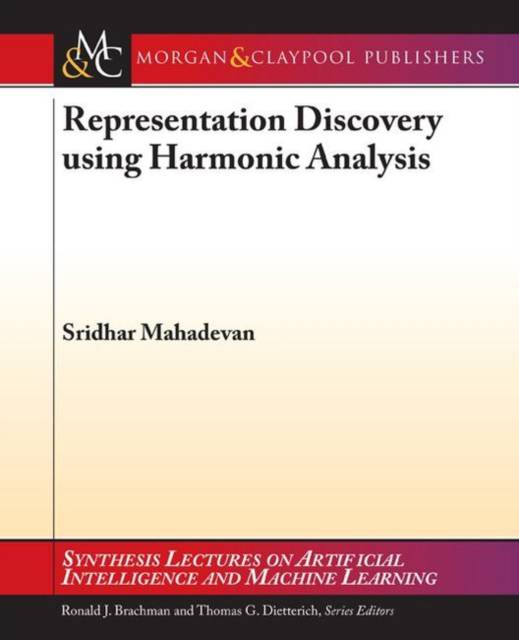
Bedankt voor het vertrouwen het afgelopen jaar! Om jou te bedanken bieden we GRATIS verzending (in België) aan op alles gedurende de hele maand januari.
- Afhalen na 1 uur in een winkel met voorraad
- Gratis thuislevering in België vanaf € 30
- Ruim aanbod met 7 miljoen producten
Bedankt voor het vertrouwen het afgelopen jaar! Om jou te bedanken bieden we GRATIS verzending (in België) aan op alles gedurende de hele maand januari.
- Afhalen na 1 uur in een winkel met voorraad
- Gratis thuislevering in België vanaf € 30
- Ruim aanbod met 7 miljoen producten
Zoeken
Omschrijving
Representations are at the heart of artificial intelligence (AI). This book is devoted to the problem of representation discovery: how can an intelligent system construct representations from its experience? Representation discovery re-parameterizes the state space - prior to the application of information retrieval, machine learning, or optimization techniques - facilitating later inference processes by constructing new task-specific bases adapted to the state space geometry. This book presents a general approach to representation discovery using the framework of harmonic analysis, in particular Fourier and wavelet analysis. Biometric compression methods, the compact disc, the computerized axial tomography (CAT) scanner in medicine, JPEG compression, and spectral analysis of time-series data are among the many applications of classical Fourier and wavelet analysis. A central goal of this book is to show that these analytical tools can be generalized from their usual setting in (infinite-dimensional) Euclidean spaces to discrete (finite-dimensional) spaces typically studied in many subfields of AI. Generalizing harmonic analysis to discrete spaces poses many challenges: a discrete representation of the space must be adaptively acquired; basis functions are not pre-defined, but rather must be constructed. Algorithms for efficiently computing and representing bases require dealing with the curse of dimensionality. However, the benefits can outweigh the costs, since the extracted basis functions outperform parametric bases as they often reflect the irregular shape of a particular state space. Case studies from computer graphics, information retrieval, machine learning, and state space planning are used to illustrate the benefits of the proposed framework, and the challenges that remain to be addressed. Representation discovery is an actively developing field, and the author hopes this book will encourage other researchers to explore this exciting area of research.
Specificaties
Betrokkenen
- Auteur(s):
- Uitgeverij:
Inhoud
- Aantal bladzijden:
- 140
- Taal:
- Engels
- Reeks:
Eigenschappen
- Productcode (EAN):
- 9781598296594
- Verschijningsdatum:
- 1/07/2008
- Uitvoering:
- Paperback
- Formaat:
- Trade paperback (VS)
- Afmetingen:
- 191 mm x 235 mm
- Gewicht:
- 285 g

Alleen bij Standaard Boekhandel
+ 114 punten op je klantenkaart van Standaard Boekhandel
Beoordelingen
We publiceren alleen reviews die voldoen aan de voorwaarden voor reviews. Bekijk onze voorwaarden voor reviews.









